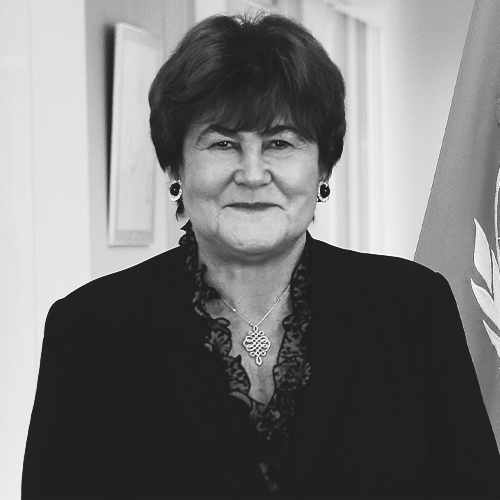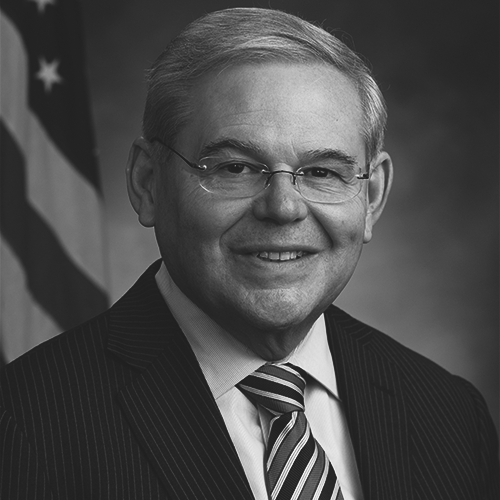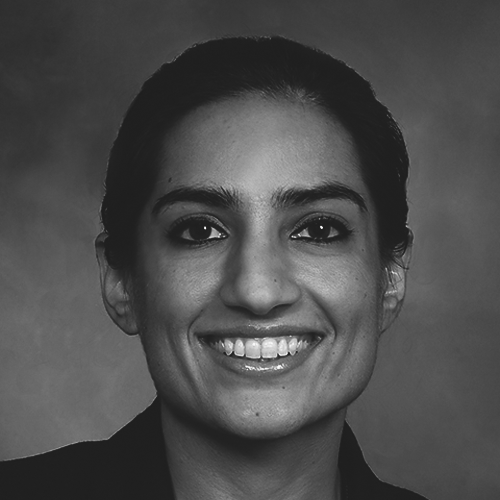Dr. Zsuzsanna Jakab serves as the Deputy Director-General of the World Health Organization (WHO), the United Nations agency dedicated to promoting public health and responsible for responding to health emergencies. Prior to her current appointment, Dr. Jakab has held several high-profile national and international public health policy positions: as WHO Regional Director for the European Region (2010-2019); as Founding Director of the European Centre for Disease Prevention and Control (2005-2010); and as State Secretary at the Hungarian Ministry of Health, Social, and Family Affairs (2002-2005), where she managed the country’s preparations for European Union accession in the area of public health.
Migration in the Age of Pandemics
Event Overview
With a focus on the intersection of mobility, human rights, and public health, the Einaudi Center’s Lund Critical Debate this year brings together one of the world's leading public health policymakers at the World Health Organization with a United States Senator and Chair of the Senate Foreign Relations Committee, who led the Senate’s efforts to study the consequences of global forced migration. The event will examine the geopolitical dimensions, the epidemiological aspects, and the humanitarian issues of this critical topic. The debate will illuminate key issues surrounding public health, migration, and racial and social justice at stake globally and nationally.
This year's Lund Critical Debate is hosted by the Mario Einaudi Center for International Studies and co-sponsored by Migrations: A Global Grand Challenge and in partnership with the Institute of Politics and Global Affairs. Established in 2008, Einaudi's Lund Critical Debate Series is made possible by the generosity of Judith Lund Biggs ’57.
What You'll Learn
- How governments and international organizations are responding to the challenges of the pandemic and global migration — and which strategies are most effective
- How the WHO works with the United States and other countries to promote and protect public health
- What the root causes are behind surges of forced and voluntary migration in recent memory, and how the pandemic has exacerbated these movements of peoples
- How pandemic-related travel restrictions have impacted the numbers — and the lived experiences — of migrants and refugees
- What steps governments and citizens can take now to foster public health and human rights
Speakers
The son of Cuban immigrants, Senator Bob Menendez has represented the state of New Jersey in the United States Senate since 2006. As Chairman of the Senate Foreign Relations Committee, Senator Menendez has established himself as a foreign policy leader, seeking to do globally what he has done in New Jersey: support the most vulnerable in our society and lend a voice to those least able to speak for themselves. In June 2020, under his leadership, the committee published the report, “Global Forced Migration: The Political Crisis of Our Time.” Senator Menendez helped pass the Senate’s COVID-19 relief packages and other healthcare legislation as well as playing a key role in shaping immigration reform bills. Prior to his position in the Senate, he served in the U.S. House of Representatives from 1993 to 2006.
Dr. Gunisha Kaur is an assistant professor of anesthesiology who specializes in human rights research. Dr. Kaur serves as the Founding Director of the Human Rights Impact Lab, a Medical Director of the Weill Cornell Center for Human Rights, and a Faculty Fellow at the Mario Einaudi Center for International Studies, where she co-leads the migrations research team. Dr. Kaur’s research interests focus on advancing the health of displaced populations such as migrants, refugees, and asylum seekers. She has used her extensive training and research in neuroscience as an analytical framework to pioneer the study of human rights through scientific methodology. Her research is currently funded by the National Institutes of Health. A foremost leader in scientific investigations into migrant health, Dr. Kaur was selected as a member of the Sigma Xi Scientific Research Honor Society and as a Stephen M. Kellen Term Member at the Council on Foreign Relations. She earned her B.S. from Cornell University in 2006, M.D. from Weill Cornell Medical College in 2010, and her M.A. in medical anthropology from Harvard University in 2015.

Dr. Zsuzsanna Jakab serves as the Deputy Director-General of the World Health Organization (WHO), the United Nations agency dedicated to promoting public health and responsible for responding to health emergencies. Prior to her current appointment, Dr. Jakab has held several high-profile national and international public health policy positions: as WHO Regional Director for the European Region (2010-2019); as Founding Director of the European Centre for Disease Prevention and Control (2005-2010); and as State Secretary at the Hungarian Ministry of Health, Social, and Family Affairs (2002-2005), where she managed the country’s preparations for European Union accession in the area of public health.

The son of Cuban immigrants, Senator Bob Menendez has represented the state of New Jersey in the United States Senate since 2006. As Chairman of the Senate Foreign Relations Committee, Senator Menendez has established himself as a foreign policy leader, seeking to do globally what he has done in New Jersey: support the most vulnerable in our society and lend a voice to those least able to speak for themselves. In June 2020, under his leadership, the committee published the report, “Global Forced Migration: The Political Crisis of Our Time.” Senator Menendez helped pass the Senate’s COVID-19 relief packages and other healthcare legislation as well as playing a key role in shaping immigration reform bills. Prior to his position in the Senate, he served in the U.S. House of Representatives from 1993 to 2006.

Dr. Gunisha Kaur is an assistant professor of anesthesiology who specializes in human rights research. Dr. Kaur serves as the Founding Director of the Human Rights Impact Lab, a Medical Director of the Weill Cornell Center for Human Rights, and a Faculty Fellow at the Mario Einaudi Center for International Studies, where she co-leads the migrations research team. Dr. Kaur’s research interests focus on advancing the health of displaced populations such as migrants, refugees, and asylum seekers. She has used her extensive training and research in neuroscience as an analytical framework to pioneer the study of human rights through scientific methodology. Her research is currently funded by the National Institutes of Health. A foremost leader in scientific investigations into migrant health, Dr. Kaur was selected as a member of the Sigma Xi Scientific Research Honor Society and as a Stephen M. Kellen Term Member at the Council on Foreign Relations. She earned her B.S. from Cornell University in 2006, M.D. from Weill Cornell Medical College in 2010, and her M.A. in medical anthropology from Harvard University in 2015.
- View slide #1
- View slide #2
- View slide #3
View Keynote by completing the form below.
You're Registered!
https://ecornell.cornell.edu/keynotes/view/K021622/
Add to Calendar 9:30 AM - 10:30 AM EST
With a focus on the intersection of mobility, human rights, and public health, the Einaudi Center’s Lund Critical Debate this year brings together one of the world's leading public health policymakers at the World Health Organization with a United States Senator and Chair of the Senate Foreign Relations Committee, who led the Senate’s efforts to study the consequences of global forced migration. The event will examine the geopolitical dimensions, the epidemiological aspects, and the humanitarian issues of this critical topic. The debate will illuminate key issues surrounding public health, migration, and racial and social justice at stake globally and nationally.
This year's Lund Critical Debate is hosted by the Mario Einaudi Center for International Studies and co-sponsored by Migrations: A Global Grand Challenge and in partnership with the Institute of Politics and Global Affairs. Established in 2008, Einaudi's Lund Critical Debate Series is made possible by the generosity of Judith Lund Biggs ’57.https://ecornell.cornell.edu/keynotes/view/K021622/primaryAmerica/New_YorkeCornell
